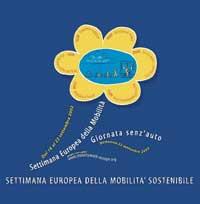Agenda 21: People will save the world
2003/11/01 Rementeria Argote, Nagore - Elhuyar Zientziaren Komunikazioa Iturria: Elhuyar aldizkaria
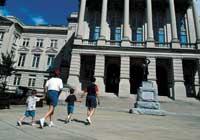
The Agenda 21 document lays the foundation for sustainability. It is based on two fundamental principles: on the one hand, on the need to integrate the environment, the economy and society, and on the other, on the possibility of achieving global sustainability through local sustainability.
Three heads in the same ring
The environment, the economy and society form an integrated system everywhere. The development of the economy needs natural resources and therefore affects the environment. On the other hand, economic activity aims to meet the needs of the population and its circumstances directly influence the quality of life of society. Therefore, it is considered essential that these three areas be merged and treated as a single one.
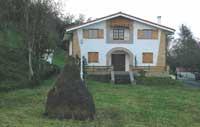
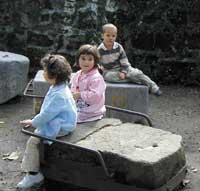
Therefore, to see Agenda 21 only from the environmental point of view is to stand upside down. One of the great achievements of the program is the recognition that economic and social issues are directly related to the environment, so these three dimensions must be taken into account when preparing any planning.
On a social level, equality is the main objective, but taking into account the specific situation and character of society in each of the peoples, different actions are promoted to achieve equality. However, the essential thing is to meet the basic needs of society, but it is difficult to pinpoint what these basic needs are; it does not seem that the basic needs of rich countries are the same as those of the poorest countries.
In addition, it should be noted that the goal of Agenda 21 is global sustainability. Therefore, programmes that could harm the rest of the world's population are not allowed, even if they are very beneficial to the local population. It is important, among other things, to boost the local economy, avoid the submerged economy and guarantee workers' rights.
As for economic activity, it is observed that diversification provides stability, especially in times of crisis. Therefore, it is important to promote all sectors.
On the other hand, it is also important to value products based on the service they provide, since producing products that last longer with less raw materials, natural resources would not have so much pressure.
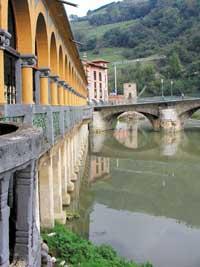
The limitation of the exploitation of natural resources is necessary for the protection of the environment, but not only at the local level, since the use of external natural resources to protect the indigenous does not benefit the world environment. This is why environmental education and respect for nature are of particular importance worldwide.
The document therefore calls for the need to seek local sustainability to achieve global sustainability, so that all the peoples of the world are only sustainable and the world is sustainable. In short, global problems are also local problems and vice versa. That is why it is used as a slogan “think globally, act locally”.
Birth Agenda 21
The United Nations Conference on Environment and Development was held in Rio de Janeiro in 1992. Agenda 21 was one of the main documents published after the conference that defined, among others, the role of different actors in the path to sustainable development.
Some of the agents mentioned in Agenda 21 were immediately willing to work: they were the local authorities. It recognized the work that municipalities could do in favor of the environment in the world, leading to the Local Agenda 21 (AL21).
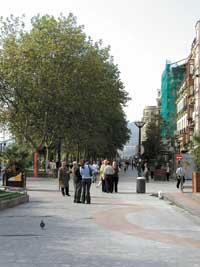
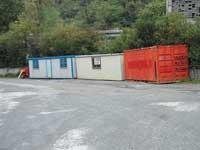

Stefan Kuhn is director of the European Programme of Local Agenda 21 at ICLEI (European Secretariat of Local Governments for the Implementation of Sustainable Development). In the early 1990s, local authorities began to realize the power they could have in environmental protection, “and they enjoyed the order to create the AL21.” In fact, the Agenda 21 document called on local governments to take its guidelines.
At all levels of government
The document also refers to other agents, such as national authorities, who were not so enthusiastic about convening Agenda 21. Stefan Kuhn believes that they realized the limitations of national governments, but also the possibilities offered to them to work with local governments.
However, if minimal coherence is desired, each national government should have its own Agenda 21. “It must apply to all levels of government at once. But we have to look for the most suitable way for each level.”
Mr. Kuhn believes that the biggest obstacle to the implementation of Agenda 21 at governmental levels higher than municipalities is the almost impossibility of guaranteeing citizen participation. The objective of Agenda 21 is that all voices have space, so participation has special relevance throughout the process.
However, “there are regional strategies that seek sustainable development, such as the Autonomous Community of the Basque Country, Bavaria, United Kingdom, etc. And also those seeking sustainability at the national level, such as Australia, Germany or the Netherlands.”
Enemy development and sustainability? The best-known definition of sustainable development was given by the Brundtland commission in 1987. According to this definition, sustainable development is “the one that meets current needs without compromising the ability of future generations to meet needs.” This same report called for environmental protection, social development and economic growth to be considered a unique issue. But it is not an easy concept to internalize, as development and sustainability seem to be counterposed terms in current life. We consider development as synonymous with growth, and the goal of the economy is unlimited growth. However, growth needs natural resources, which are limited. Therefore, to understand what sustainable development is, it is necessary to distinguish between development and growth. In short, development is related to the improvement of the quality of life, but with the least deterioration of natural resources. |
How do you want your people to be? Who knows the municipality better than its inhabitants? Nobody is clear. Hence the importance of taking into account your opinion, both when making a diagnosis of the situation of the municipality and when selecting the actions to perform. The local population must decide what kind of future they want. And sometimes the decisions made do not fit the expectations of politicians. However, if the commitment is made to implement Local Agenda 21, the authorities also have the responsibility to comply with the decisions taken during the process. You have to be very careful and comply with the decisions made in the forums, otherwise participants lose motivation. Who will continue to attend the forums if agreed actions are not carried out? |

Gai honi buruzko eduki gehiago
Elhuyarrek garatutako teknologia






